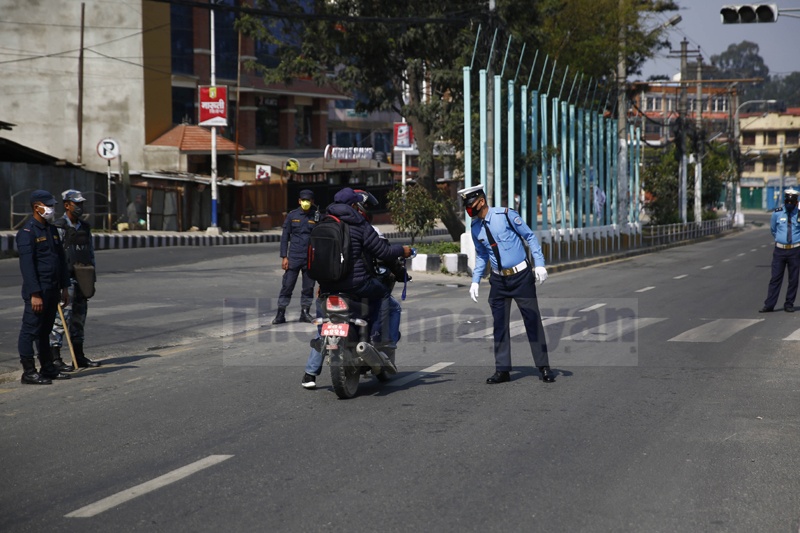Government should rethink lockdown strategy, say public health experts
Kathmandu, April 10
Public health experts have suggested that the government should rethink its lockdown strategy with new approaches, such as allowing movement within certain areas by enforcing strict social distancing measures.
They are of the view that a blanket lockdown in a country like Nepal, where millions of people go out to work daily to put food on the table, might create other social problems.
Epidemiologist and public health expert Sujan Marahatta said there were countries that contained COVID-19 spread by enforcing strict social distancing measures without resorting to lockdown. “Countries that implemented rigorous trace, test and isolation exercise were able to contain the spread without lockdown. But countries that did not implement this strategy, such as the US and the UK, had to suffer and eventually go for a lockdown,” said Marahatta.
“Lockdown is the last resort.
Once the virus spreads, it’s already too late.”
However, according to Marahatta, lockdown is not the solution and it must be accompanied by a rigorous trace, test and isolation exercise. Countries impose lockdown to be fully prepared for testing and tracing and not allowing the virus to spread in the meantime.
However, in Nepal, no rigorous testing and tracing followed the lockdown. In a country with population of around 30 million, only 3,000 or so tests have been conducted. “This does not give a clear picture to lift the lockdown with confidence,” said Marahatta.
“Since the country cannot just go with a prolonged lockdown, it should now apply different approaches.”
Marahatta suggested that the country could be divided into clusters, such as provinces, districts or cities and allow movement within the clusters, barring inter-cluster movement. He said the government must also enforce strong social distancing measures.
Generally, lockdowns are tied up with the incubation period of the disease. However, sometimes incubation period goes beyond the standard 14 days, up to 28 days. The last COVID-infection found in the country was on April 4. “This suggests the lockdown will be extended,” said Dr Sagar Kumar Rajbhandari, director of Teku Hospital.
Rajbhandari suggested Nepal had to take a decision based on India because if any difference between the two would result in mass movement of people across the border, that would result in increased chances of the coronavirus spread.
Moreover, there are cases of people testing positive for COV- ID-19 even five weeks after testing negative. Marahatta said this depended on patients. Some asymptomatic and mild-symptomatic patients might also just go undetected.
A version of this article appears in e-paper on April 11, 2020 of The Himalayan Times.






